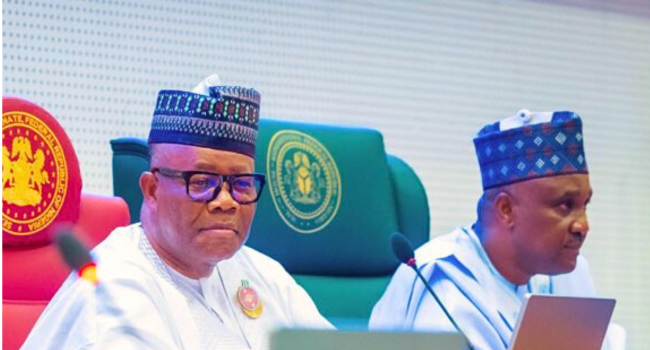The pan-Yoruba socio-cultural and socio-political organization, Afenifere, has cautioned President Bola Tinubu’s administration against following the recent advice from the World Bank, which recommended the reduction of government support for social services in Nigeria.
In a statement on Saturday, Afenifere’s National Publicity Secretary, Jare Ajayi, urged the Federal Government to reconsider adopting policies that may result in long-term hardships for Nigerians, following comments made by World Bank Group’s Senior Vice President, Indermit Gill.
Gill, speaking earlier this week at the Nigerian Economic Summit Group (NESG) in Abuja, advocated for the withdrawal of support for social and economic programmes, along with the floating of the Naira. According to him, the positive outcomes of these measures would only be visible in 10 to 15 years.
Reacting to this, Ajayi warned that such policies may bring immediate suffering to Nigerians, while the supposed benefits would take too long to manifest.
“Firstly, the current administration under President Bola Ahmed Tinubu would have run its terms before the 10 to 15 years the presumed dividends of the World Bank prescriptions will manifest,” Ajayi said. “Meaning that this administration may then only be remembered for the sacrifices made by the people and the attendant sufferings, while another administration would take the credit for the dividends – if at all.”
Ajayi suggested that instead of following the World Bank’s advice, the Federal Government should implement policies that promote local businesses and initiatives, reducing Nigeria’s dependence on imported goods.
He further noted that several countries that followed the prescriptions of the World Bank and International Monetary Fund (IMF) ended up in worse economic situations. “Countries such as Mexico, Mozambique, Ghana, Argentina, Thailand, South Korea, Indonesia, and the Democratic Republic of Congo suffered greatly after adopting these institutions’ policies,” he said.
Ajayi cited the example of Malaysia, where the Prime Minister rejected similar conditions from the World Bank, opting for a different approach that initially proved challenging but eventually led to significant economic growth.
“The conditions given by the Bank included budget cuts, removal of subsidies, and the devaluation of the country’s currency. But, instead of heeding the advice, the Malaysian PM did the exact opposite. Today, however, Malaysia is growing economically and is one of the few countries that are shedding the toga of third-worldism,” Ajayi explained.
He concluded by stressing that while laying a strong foundation for economic recovery is crucial, Nigeria should avoid the models prescribed by the World Bank and IMF, given the negative impacts these policies have had in other countries.
Ajayi called on the Federal Government to prioritize the welfare of Nigerians and focus on policies that stimulate local economic growth rather than relying on foreign recommendations that may exacerbate the country’s challenges.




